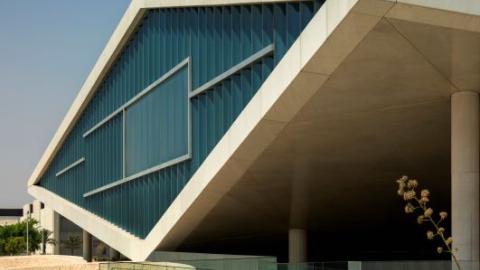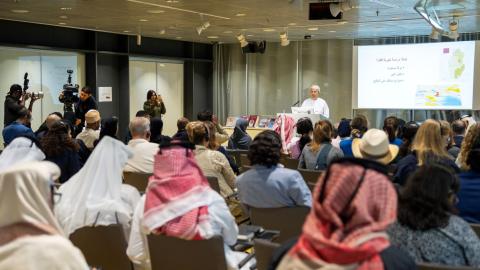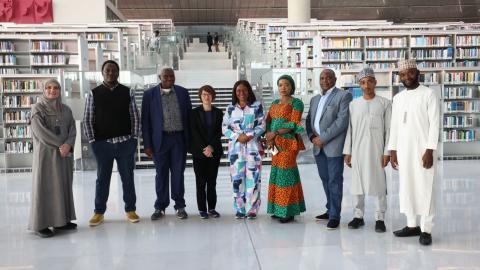
IFLA currently has a network of 13 Preservation and Conservation (PAC) Centres worldwide. The goal of the PAC Strategic Programme is to ensure that library and archive materials, published and unpublished, in all formats will be preserved in accessible form for as long as possible according to IFLA PAC principles.
As part of the appointment, QNL will represent the 25 countries in the Middle East and North Africa (MENA) where Arabic is one of the official languages. Therefore, by serving as the PAC, Qatar National Library is supporting QF’s vision of protecting and, preserving the region’s heritage and culture, and making them accessible for future generations.
.

More discussions with the IFLA headquarters are set to take place for the PAC project activities. Currently, these mainly include workshops in Arabic and English on preventive and active conservation, production of web pages on the QNL portal in Arabic and English, and provision of free information (printed and digital format) in Arabic on preventive conservation, active conservation, digital preservation, and material providers.
Dr Joachim Gierlichs, QNL's Associate Director for Special Collections and Archives, commented on the announcement, saying: “Qatar National Library is proud to become the first Regional Arabic Speaking Preservation and Conversion Centre. This comes as a result of its continuous efforts in preserving Qatar and the wide region’s heritage.”
Eng. Saadi Al Said, QNL’s Associate Director for Administration and Planning, added: “We are proud that QNL has been selected as the Regional Arabic Speaking Preservation and Conservation Centre in the Middle East and North Africa (MENA). The appointment is in-line with QNL’s national function to collect and provide access to global knowledge relevant to Qatar and the region. This centre will help QNL become a hub for the region’s heritage, and establish strong relations with other libraries in the region and beyond.”
Dr Claudia Lux, Project Director of Qatar National Library, said: “Being an IFLA PAC Centre puts the hosting organisation at the forefront of preservation and conservation. It enables the organisation to participate in a worldwide network and offers opportunities to participate in the wide preservation and conservation activities of IFLA, such as IFLA’s work with international partners like UNIESCO (Memory of the World and others) and the Blue Shield.”
devices for book paper conservation treatment, including light tables, suction table, cutter, hydraulic press, leaf casting machine, drying racks, and fume hood for solvent treatment. The lab will also include a specific area devoted to biological risks in libraries and special microscopes for material analyses and identification.
QNL continues to collaborate with prominent institutions around the world such as the World Digital Library (WDL) through organising a highly informative symposium every year on the preservation of heritage. Such symposiums and meetings provide the opportunity for sharing the best practices in the area of heritage preservation and sharing, and will benefit not just QNL but also other libraries and information centres throughout the region.
QNL is also the home of the Heritage Collection, which was founded in the early 1980s as part of H.E. Sheikh Hassan bin Mohammed bin Ali Al-Thani’s vision to create, and make accessible, a landmark repository of Qatar and regional history in the heart of Doha. The Heritage Collection is a unique contribution to Qatar’s cultural landscape. Specifically, the Collection’s Early Arabic printing section contains some of the first Arabic books printed on presses in Shweir (Lebanon), Aleppo, Mosul, Bulaq, and in the Hijaz.



